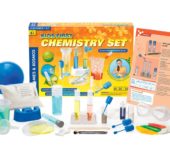Make Your Prospects Crave What You’re Selling through Storytelling
We’re excited to have a guest post (Make Your Prospects Crave What You’re Selling through Storytelling) by Jody Sutter, owner of The Sutter Company, a business development consultancy working with small agency CEOs to activate their natural talents for business development through programs that are easy to embrace and take the agency’s available resources into consideration. You can reach Jody at jody@thesuttercompany.com. (Thanks Jody!)

Use storytelling to transform your sales messages
A good story is the fastest route between you and winning new business.
Why?
Stories are easy to remember.
How many times do you need to hear an urban legend like “the kidney heist” before you can repeat it yourself? My guess is that hearing it just once will do the trick. Maybe you’ll miss some of the finer points, but you’ll be able to get across the general idea.
Now think about the last new business pitch you gave or prospecting email you sent. Did it have the same effect?
To be fair, the kidney heist is filled with the kind of lurid details we humans love but that have no place in a new business pitch. But the other thing that the kidney heist has going for it is that it’s a story – and stories have a completely legitimate role to play in winning you more new business.
Stories make the intangible tangible
Advertising is a craft that relies on abstract thought processes that lead to inspirational ideas like “Just do it.”
The problem is, abstract ideas are difficult to describe and even more difficult to value. “Just do it.” means little without the context of Nike, the brand which it’s served so well for so long.
I bet you run into this problem all the time. Think about how often you search for the right way to describe the work you do only to succumb to meaningless, anemic phrases like “fully integrated,” “digital-first” and “consumer at the core.”
Stories, on the other hand, make the intangible tangible.
They give your prospective client, who may know almost nothing about you, something to relate to. Stories make it easier for them to remember you and to repeat to others what they liked about you.
This is not just my personal theory. There is science to back this up.
Neuroscientists have done research that show our brains are hard-wired to engage when we’re being told a story. In fact, storytelling is essential for us to process raw data into information we can act on.
You write stories all day, every day
You’re in the business of telling great stories –
VW “Think Small.”
Apple “Get a Mac”
Dove “Real Beauty”
And, of course Nike “Just do it”
You just need to learn how to tell them about yourself.
It’s much easier to tell someone else’s story – you have the advantage of objectivity—but you can harness it to tell your own story.

What makes a great story?
All good stories, from the mundane to the sublime, have a set of common qualities:
- A beginning, a middle and an end
- A protagonist—a primary actor propelling the story forward
- Something at stake
- Surprises and setbacks
While storytelling is a technique that novelists, playwrights and others have spent lifetimes perfecting, the basics are easy to grasp. They’re as innate in us as language is.
When I work with ad agencies to help them communicate more effectively with prospects, I start by showing them the stories that surround them that are just waiting to be told—client successes, the team’s experience, the decisions made and struggles overcome to build an agency into what it is today.
Often these stories are taken for granted, either because they’re treated as table stakes or because the agency is simply too close to them to recognize their value. The irony is that agencies replace these simple but powerful narratives with familiar, empty phrases or bulleted lists, both of which have the opposite effect than the one they’ve intended.
For example, in case study results, I see a tendency to rely on lots of big sounding numbers and percentages at the expense of anecdotes about, say, a clever negotiating approach or unexpected setbacks that were successfully overcome.
It’s not that big increases in revenue or engagement aren’t important, it’s that the reader must work harder to process that information into a narrative they can relate to. Essentially, in your effort to impress, you’re putting up a roadblock between you and the business you want to win.
Where to start?
Even if I’ve convinced you that being human is the only qualification you need to master storytelling, you may still be wondering how to harness your natural talent. Case studies are a great place to start.
By their nature, they have all the elements of a good story:
- The form is the same. Challenge + solution + results is equivalent to a story’s beginning, middle and end.
- A protagonist, which may be the client or the brand or your agency’s team.
- There’s revenue and reputation at stake—both for you and your client.
- And, unless someone out there can prove to me they’ve mastered a frictionless creative process, there are always surprises and setbacks.
Like I said earlier, the surprises and setbacks are what make the story so interesting. They tell your prospect what you want them to know – that you’re perseverant, innovative, relentless, client-focused, committed to your work—without having to rely on those empty-sounding phrases.
You make it easy for the prospect to understand your value, to relate to you, and to remember and repeat to others what they like about you and why they want to hire you.
Good stories are often short stories.
As you start to trust your storytelling capacity, try using it in more challenging formats, like a prospecting email or a tweet. Trust me, all the elements of a good story can be packed into 140 characters or less.
Need more proof?
Ernest Hemingway once bet that he could write a six-word short story that could make people cry. The wager was ten dollars, which Hemingway won with the following:
For sale: Baby shoes. Never worn.
I hope your stories will never be as tragic, but they can make a similar impact. Trust your innate ability to connect with your prospects who are, after all, other humans who just want to hear a good story.









